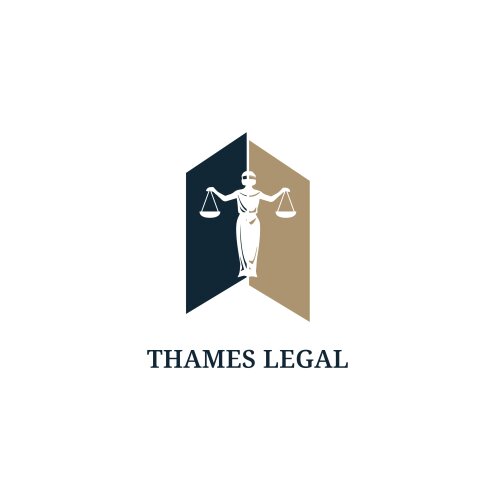Best Art & Cultural Property Law Lawyers in Thailand
Share your needs with us, get contacted by law firms.
Free. Takes 2 min.
Or refine your search by selecting a city:
List of the best lawyers in Thailand
Legal guides written by Smart Legal Solutions:
- Main Legal Measures to Protect Foreign Investment in Thailand
- The importance of the geographical indications for the Thai economy
About Art & Cultural Property Law in Thailand
Art & Cultural Property Law in Thailand encompasses the legal principles governing the protection, preservation, and regulation of cultural heritage, artworks, and archaeological sites within the country. This field of law aims to safeguard Thailand's rich cultural legacy, ensuring that artifacts and artistic works remain protected from illegal trade, theft, and destruction. Thailand's vibrant cultural history and heritage necessitate comprehensive legal frameworks to oversee public and private dealings in art and cultural properties.
Why You May Need a Lawyer
There are several situations where individuals or organizations might require legal assistance in the field of Art & Cultural Property Law in Thailand. These can include:
- Acquiring or selling art and cultural artifacts where the provenance needs legal validation.
- Legal disputes involving the ownership and restitution of stolen or lost cultural items.
- Compliance with local laws and international treaties regarding the import and export of cultural properties.
- Conservation and restoration efforts of cultural sites which may require specific legal consultations.
- Developing or interpreting contracts regarding art exhibitions, loans, or commissions.
- Facing accusations or defending against charges of illegal trade or trafficking in art and cultural properties.
Local Laws Overview
Thailand has specific legal frameworks in place that address the protection and management of art and cultural properties. Key aspects include:
- The National Culture Act, which governs the promotion and preservation of Thai culture.
- The Ancient Monuments, Antiques, Objects of Art and National Museums Act, focusing on prevention of unlawful trade and ensuring proper stewardship of national treasures.
- The Copyright Act, which provides protection for creators of art against unauthorized use and reproduction.
- Intellectual property laws, which are relevant when dealing with modern artistic works and their commercial exploitation.
- International agreements such as the UNESCO Convention, which Thailand is a part of, that regulate cultural property movement across borders.
Frequently Asked Questions
What is considered a cultural property in Thailand?
Cultural property in Thailand refers to artifacts, artworks, monuments, and sites that hold historic, artistic, scientific, or other cultural significance.
How can I ascertain the legality of buying an antique in Thailand?
Engage a legal expert to conduct due diligence on the provenance of the item and ensure it is not listed as a protected asset under Thai law.
Are there penalties for illegal trade of cultural artifacts?
Yes, the penalties can include significant fines, imprisonment, or both, depending on the severity of the offense.
Can I legally export art from Thailand?
Exporting art requires permissions from relevant authorities, particularly if the items are protected under cultural property laws.
How is the copyright for an art piece protected in Thailand?
Copyright protection is afforded under Thai law as soon as a work is created, provided the artist adheres to registration procedures and other statutory requirements.
What steps are involved in repatriating stolen art to Thailand?
Legal proceedings typically include proving rightful ownership and collaborating with international organizations and foreign governments.
How do local communities contribute to cultural property management?
Local communities work alongside government bodies on conservation projects and help in maintaining cultural practices that support heritage preservation.
What role does the government play in cultural property preservation?
The government enacts and enforces laws, allocates funding for preservation efforts, and collaborates with global entities to manage cultural resources.
Is there a legal basis for art donations to museums in Thailand?
Yes, legal frameworks are in place to facilitate donations and provide tax benefits to donors.
What organizations can help in cultural property legal issues?
Several governmental and non-governmental organizations can provide assistance, including the Fine Arts Department and the National Museum Institution of Thailand.
Additional Resources
For further information and assistance, here are some resources:
- The Fine Arts Department of Thailand - overseeing national heritage conservation.
- The Ministry of Culture - governing body for cultural policy and management.
- UNESCO Bangkok Office - regional hub for cultural property protection efforts.
- Local universities with law faculties specializing in art and cultural heritage law.
Next Steps
If you need legal assistance in Art & Cultural Property Law in Thailand, consider the following actions:
- Contact a qualified legal expert specializing in art and cultural property law for an initial consultation.
- Gather all documentation related to your case, including ownership records, export/import documents, and any relevant contracts or agreements.
- Investigate potential legal funding or support options that may be available through cultural organizations.
- Stay informed about local and international developments in art law by subscribing to relevant legal journals or attending workshops.
Lawzana helps you find the best lawyers and law firms in Thailand through a curated and pre-screened list of qualified legal professionals. Our platform offers rankings and detailed profiles of attorneys and law firms, allowing you to compare based on practice areas, including Art & Cultural Property Law, experience, and client feedback.
Each profile includes a description of the firm's areas of practice, client reviews, team members and partners, year of establishment, spoken languages, office locations, contact information, social media presence, and any published articles or resources. Most firms on our platform speak English and are experienced in both local and international legal matters.
Get a quote from top-rated law firms in Thailand — quickly, securely, and without unnecessary hassle.
Disclaimer:
The information provided on this page is for general informational purposes only and does not constitute legal advice. While we strive to ensure the accuracy and relevance of the content, legal information may change over time, and interpretations of the law can vary. You should always consult with a qualified legal professional for advice specific to your situation.
We disclaim all liability for actions taken or not taken based on the content of this page. If you believe any information is incorrect or outdated, please contact us, and we will review and update it where appropriate.
Browse art & cultural property law law firms by city in Thailand
Refine your search by selecting a city.

















